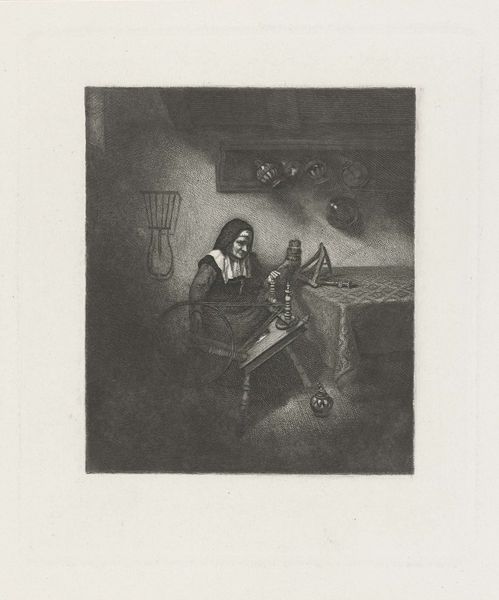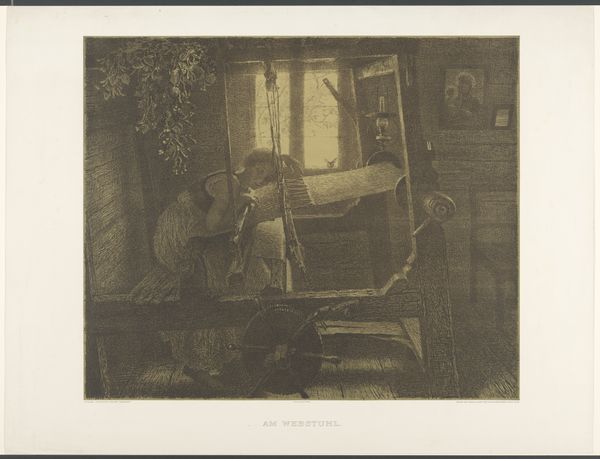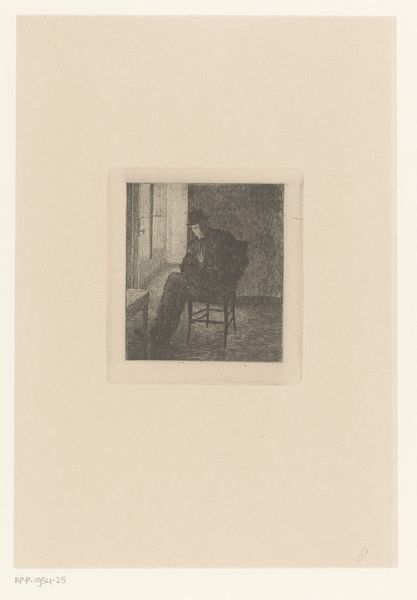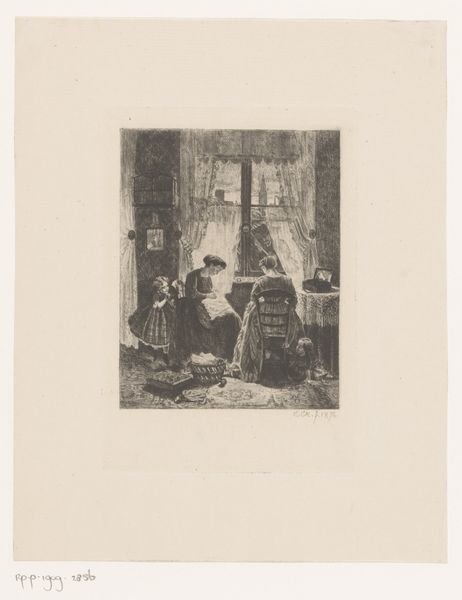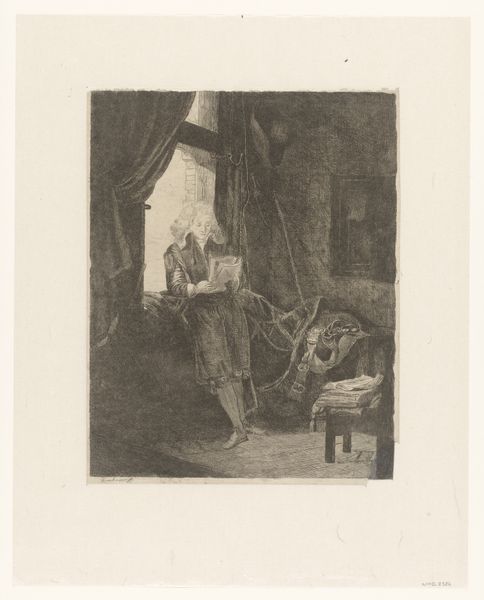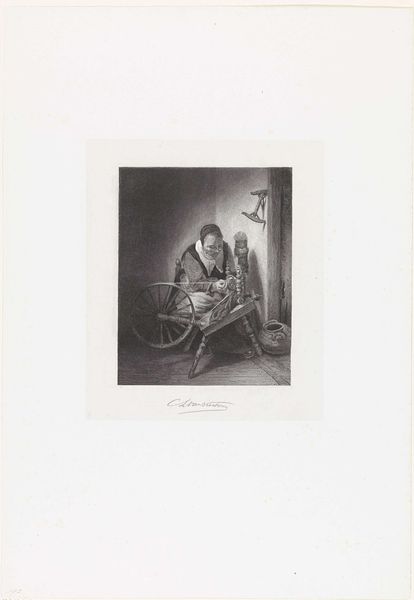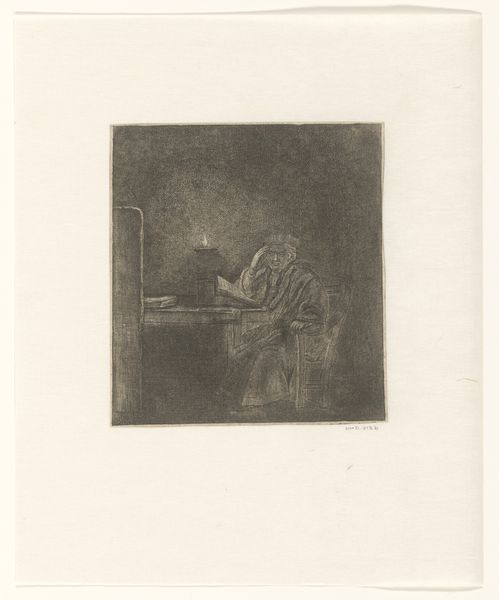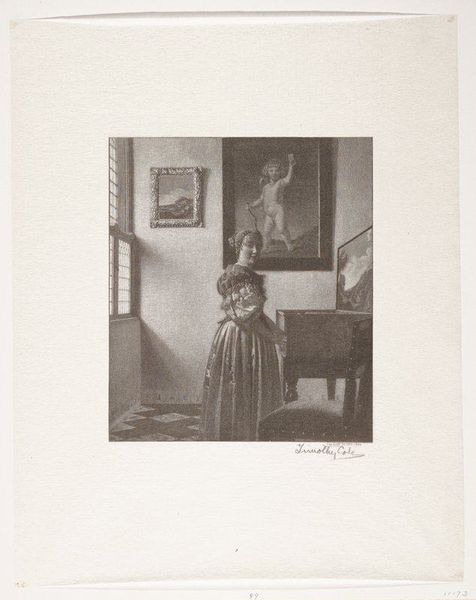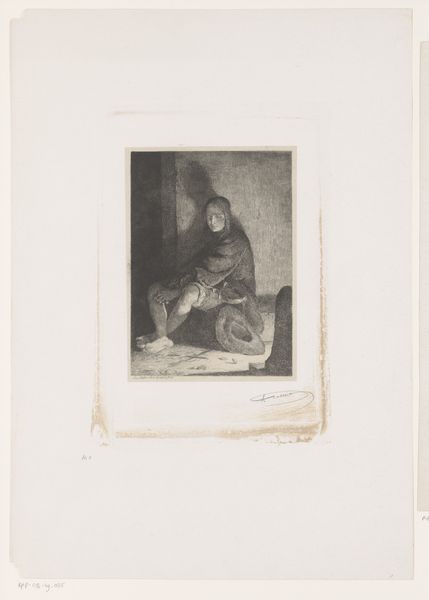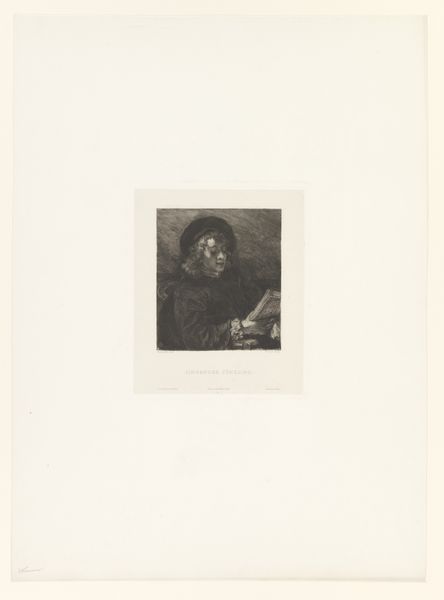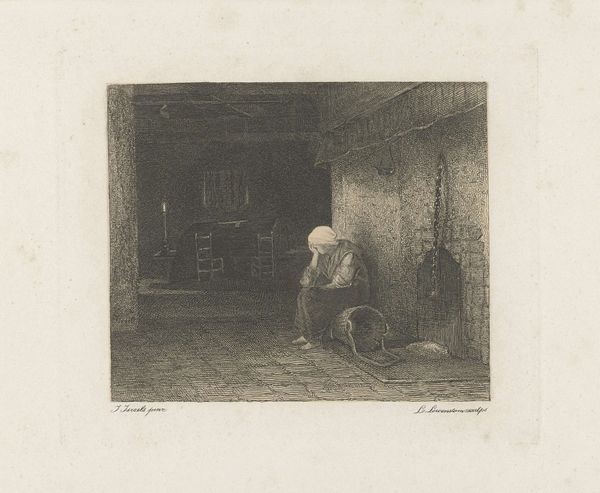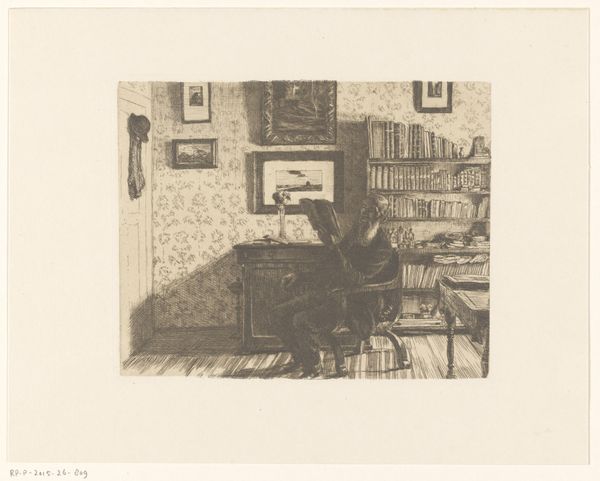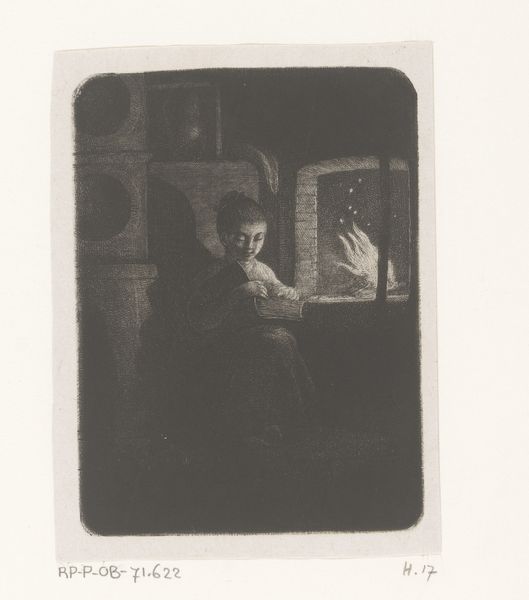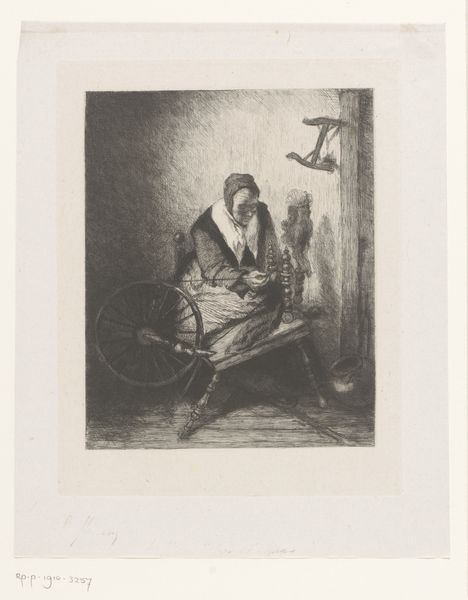
drawing, print, etching
#
portrait
#
drawing
# print
#
etching
#
genre-painting
#
realism
Dimensions: height 195 mm, width 138 mm
Copyright: Rijks Museum: Open Domain
Editor: So, here we have "Spinster aan het werk" by Leopold Löwenstam, created sometime between 1852 and 1898. It's an etching, a type of print. The scene feels very still and domestic; a woman is working at her spinning wheel. What do you see in this piece? Curator: I see echoes of enduring themes – labor, domesticity, and the quiet dignity of everyday life, meticulously captured in this etching. Look at the spinning wheel; it’s not just a tool, but a symbol. In folklore, the spindle is deeply tied to fate, time, and even female destiny. The act of spinning, of creating thread, represents weaving a life, but is there also loneliness reflected by this woman working by herself in the dim light? Editor: Loneliness? I hadn't considered that, but the dim light does create that impression. Does the realism style downplay romantic notions to give a deeper appreciation of reality? Curator: Exactly. The realism style avoids idealization. It grounds the woman in her labor, making her more accessible and real. Think about the other objects in the room – the objects displayed above the table - they are indicators of lived-in experience, the weight of generations maybe? Notice, also, how the technique itself – the etching – with its delicate lines, lends itself to capturing such nuance, don't you think? Editor: Yes, the details really add to that feeling. I was focusing on the "genre-painting" aspect, a scene of everyday life, but now I appreciate the symbols woven within it. Thanks for sharing your perspective! Curator: My pleasure! Seeing the layers beneath the surface reveals the richness embedded in these images. Art becomes a conversation across time, after all!
Comments
No comments
Be the first to comment and join the conversation on the ultimate creative platform.
